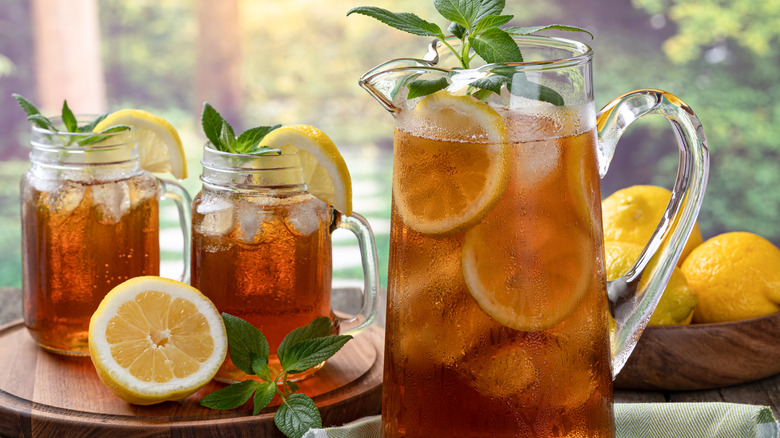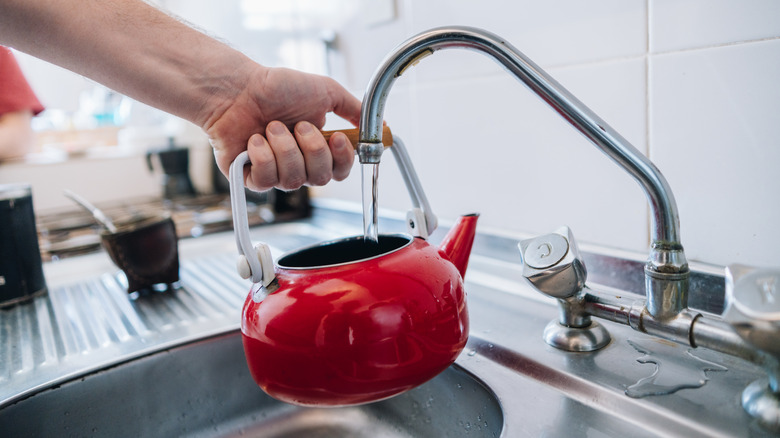If Your Iced Tea Is Cloudy, You Should Check The Water
Whether you prefer it hot or iced, a great cup of tea relies on several factors: quality tea leaves, proper steeping time, and the right water temperature. But have you ever thought about the type of water you're using for brewing? Is it hard or soft water? If you often end up with cloudy tea, then you should definitely check your water.
Sure, the temperature of the water matters — brewing tea with very hot water and then cooling it too quickly can cause cloudiness — but the mineral content in the water is another major factor. If you're using tap water that's high in minerals (i.e. hard water), it can make your tea look cloudy. Minerals like calcium and magnesium can react with the tannins in tea, forming tiny particles that create that murky appearance.
Moreover, hard water can also cause limescale buildup in your kettle. If you've ever seen a chalky white residue at the bottom of your kettle, that's limescale. When it breaks off, it can end up in your tea, further affecting its appearance and potentially adding a gritty texture to your drink. The good news is there's a simple solution. To avoid cloudiness and limescale, you can switch to soft spring water or natural bottled water, both of which have fewer minerals, reducing the chance of cloudiness. Alternatively, if you only have access to hard tap water, then getting a water filter can help remove the calcium and magnesium, making it softer and better for brewing tea.
More reason to avoid hard water when brewing tea
While cloudiness is an obvious sign that hard water might not be the best choice for preparing tea, there are other reasons to avoid hard water. The minerals in hard water don't just affect the appearance of tea, they can also alter its taste. When you steep tea in hard water, the high mineral content can overpower the delicate flavors of the tea leaves, leading to a dull, muted flavor profile where the nuanced tastes of different teas get lost.
Hard water can also give tea a bitter or metallic taste, which isn't pleasant to drink. These off flavors come from the interaction between the minerals in the water and the tannins in the tea. It's especially noticeable with green and white teas, which are more delicate and sensitive to these mineral interactions.
Another aspect that hard water affects is the aroma of tea. Tea should have a fresh, inviting scent that complements its flavor. But hard water can make the aroma less vibrant, reducing the overall sensory experience of enjoying your cuppa. If you're a tea enthusiast, these changes in appearance, flavor, and aroma can be disappointing. To avoid these issues, stick with water that has a lower mineral content when brewing your tea.

